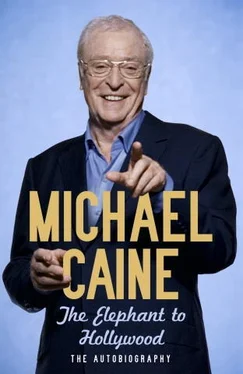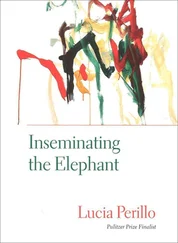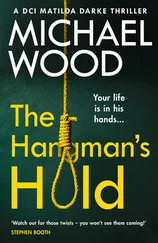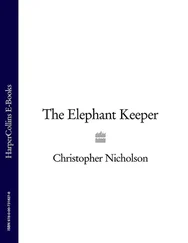Michael Caine - The Elephant to Hollywood
Здесь есть возможность читать онлайн «Michael Caine - The Elephant to Hollywood» весь текст электронной книги совершенно бесплатно (целиком полную версию без сокращений). В некоторых случаях можно слушать аудио, скачать через торрент в формате fb2 и присутствует краткое содержание. Город: London, Год выпуска: 2010, ISBN: 2010, Издательство: Hodder, Жанр: Биографии и Мемуары, на английском языке. Описание произведения, (предисловие) а так же отзывы посетителей доступны на портале библиотеки ЛибКат.
- Название:The Elephant to Hollywood
- Автор:
- Издательство:Hodder
- Жанр:
- Год:2010
- Город:London
- ISBN:978-1444700015
- Рейтинг книги:4 / 5. Голосов: 1
-
Избранное:Добавить в избранное
- Отзывы:
-
Ваша оценка:
- 80
- 1
- 2
- 3
- 4
- 5
The Elephant to Hollywood: краткое содержание, описание и аннотация
Предлагаем к чтению аннотацию, описание, краткое содержание или предисловие (зависит от того, что написал сам автор книги «The Elephant to Hollywood»). Если вы не нашли необходимую информацию о книге — напишите в комментариях, мы постараемся отыскать её.
The Elephant to Hollywood — читать онлайн бесплатно полную книгу (весь текст) целиком
Ниже представлен текст книги, разбитый по страницам. Система сохранения места последней прочитанной страницы, позволяет с удобством читать онлайн бесплатно книгу «The Elephant to Hollywood», без необходимости каждый раз заново искать на чём Вы остановились. Поставьте закладку, и сможете в любой момент перейти на страницу, на которой закончили чтение.
Интервал:
Закладка:
It soon became clear that Joan did not believe I was suited to Method Acting, the form pioneered by the Russian Konstantin Stanislavsky to which she had dedicated her life. In fact I later based all my acting on it and its basic principle that the rehearsal is the ‘work’ and the performance is the relaxtion – which is ideal for the movies. But at the time, Joan was blunt about my shortcomings. ‘Get off!’ she said to me as soon as I appeared on stage for the first rehearsal. ‘And come on again.’ I did as I was asked. ‘No!’ she said when I reappeared. ‘I’m not having it.’ I had no idea what she was talking about. ‘Not having what?’ I asked. ‘That star nonsense!’ she said. ‘This is group theatre.’ I tried my best to blend in with the rest of the cast, but Joan was never convinced. When the production ended she sacked me with what, when I look back on it, was an unintended compliment, ‘Piss off to Shaftesbury Avenue,’ she said with contempt. ‘You’ll only ever be a star.’
Joan may have thought I was destined for stardom, but no one else seemed to agree. The next few months and years were very hard. I used to hang about a casting agency just off Trafalgar Square run by a man called Ronnie Curtis, waiting to see if I could get the odd walk-on part – play, TV, film, I didn’t care. On one occasion I got a job just because I happened to fit the policeman’s uniform the film company had already got in their wardrobe. When I wasn’t in work (which was most of the time) and couldn’t stand sitting around in Ronnie’s office any longer, I’d go to the places where all the other young, unemployed actors used to hang out – the café under the Arts Theatre in Sackville Street, the Salisbury pub in St Martin’s Lane, the Legrain coffee shop in Soho, or Raj’s (illegal) afternoon drinking club. There was great comfort in knowing it was just as tough for everyone else but it was a soul-destroying time. And it wasn’t just the lack of jobs – every time I was rejected at an audition I had to pick myself back up and start again. Occasionally people have criticised the sums of money I’ve made from movies – well, I always think back to the ten years of hard work, of misery, of poverty and uncertainty I had to go through to get started. As an out-of-work actor I couldn’t rent a room, borrow money from the bank or get insurance. It’s not surprising so many eventually decide they can’t take it any more.
I was nearly one of them. One night, when I really was on the verge of finally giving up the struggle, I placed my regular phone call to Josephine. Every evening at six o’clock, all of us young hopefuls would rush to the phone boxes in Leicester Square to call our agents to see if any jobs had come in that day. Usually there was nothing going, but this time Josephine had some good news: she’d managed to get me a small part in a TV play of The Lark by Jean Anouilh – courtesy of Julian Aymes, the director of A Hill in Korea , who had asked for me. There was one problem – I’d have to become a member of the actors’ trades union Equity and there was already an actor on their books with my stage name, Michael Scott. Josephine said I’d have to change my name in the next half hour so she could send the contract back. I put down the phone and went and sat down on a bench in the middle of Leicester Square. It was – as now – the venue for all the premiere movie releases. I looked around at all the cinemas, at all the stars up there with their names in lights, and tried to imagine myself alongside them. Michael—? And then I saw it. Humphrey Bogart, my favourite actor, my hero, was starring in The Caine Mutiny . Caine – because it was short, because it was easy to spell, because I was feeling very mutinous at the time – and because, like Cain in the Old Testament, I, too, was outside Paradise. Michael Caine I would be.
4
Everyone Gets Lucky Sometimes…
I may have had a name that fitted on a billboard but billboards were pretty thin on the ground during the next few years. I got the occasional bit part in a film or TV drama, including a couple of episodes of the popular police series Dixon of Dock Green ( The Bill of its day), but nothing like a breakthrough and I was forced to find other work just to make ends meet. I took on one job as a night porter at a small hotel in Victoria – easy money, I thought. The clientele was friendly – it was very popular with couples called Smith (Mr Smith was usually an American soldier) – and it meant I would be free during the day for auditions, should I ever be invited to any. As always, things weren’t quite as straightforward as that. One night I was settling down to my book as usual after escorting a group of very drunk punters and six tarts to their rooms, when an incredible racket broke out on the floor above. Each to his own, I thought and tried to ignore it, but after a bit I realised it was serious. One of the girls was being beaten up – and she didn’t like it. With all the panache of my hero Humphrey Bogart, I rushed upstairs, shouldered the door down (it wasn’t actually locked), hauled the guy off the girl and knocked him out. I was just putting the finishing touches to my knight in shining armour role by helping the girl – who was very frightened – back into her clothes and calming her down, when a bottle smashed down on my head and put me out cold. I’d forgotten about the guy’s five friends, who were sober enough now, and they proceeded to kick the shit out of me. It’s a funny old world, though. The son of that hotel owner is Barry Krost, whose first claim to fame was as the young Toulouse-Lautrec in the 1952 John Huston biopic about the artist, Moulin Rouge ; he is now a Hollywood agent and great friend of mine – in fact he put together the deal to make Get Carter . You just can’t tell how things are going to work out, can you?
Still no jobs, and with the unexpected and tragic death during a routine operation of my lovely and persistent agent Josephine Burton, I had lost one of the few professionals who really believed in me. My new agent, Pat Larthe, seemed to be having just as much trouble getting me the break and indeed unwittingly nearly pushed me to the very edge of despair. Initially, her news sounded so good. She had managed to get me an interview with Robert Lennard, the chief casting director of Associated British Pictures, one of the biggest movie companies in Britain at the time, which had a number of actors under contract. A contract would mean a regular income and maybe a chance to pay off some of the money I owed. I knew exactly how my mum had felt all those years ago when the debt collectors came to call – I was constantly dodging across the street to avoid my creditors and, even more worryingly, had by now fallen behind with my maintenance payments for Dominique. Mr Lennard seemed a kind man, but he had a bleak message for me. He told me it was a tough business. Hardly news to me. He then said, ‘You will thank me for this in the long run, but I know this business well and believe me, Michael, you have no future in it at all.’ I sat there, trying to remain calm, but inside I was seething with fury. ‘Thank you for the advice, Mr Lennard,’ I managed to say politely and left before I thumped him. On the way back I became angrier and angrier – and it was this that saved me from complete despair. I was going to try even harder; no one was going to tell me what I could and couldn’t do.
Mr Lennard, as it happened, turned out not to have the sharpest eye in the business. I wasn’t the only actor finding it tough; the others who used to hang out with me waiting for work around this time included Sean Connery, Richard Harris, Terence Stamp, Peter O’Toole and Albert Finney. And all this while Mr Lennard had dozens of people under contract whose names are entirely absent from the annals of movie history. Despite his advice, I picked myself up, yet again, and kept on going, surviving on the odd small part. I couldn’t help noticing, however, that some of my friends were beginning to get the odd big part. Sean Connery, for instance, who had originally been discovered in a gym by a casting director looking for some slightly more convincing American sailors than the usual British chorus line for South Pacific , had got the lead role in the TV play Requiem for a Heavyweight . I came on in the last scene. Then my friend Eddie Judd got the starring role in the film The Day the Earth Caught Fire ; I played the policeman – and I didn’t even manage that very well. And Albert Finney, playing opposite the legendary Charles Laughton in The Party , was receiving rave notices for his performance – and rightly so. Meanwhile, I’d hit a new low. I turned up at one film audition, was called in, opened the door and the casting director shouted, ‘Next!’ before I’d even opened my mouth to say hello. I really couldn’t see what I’d done wrong – and it turned out I hadn’t done anything wrong, except grow too tall. The star of the film was the famously short Alan Ladd and if you were above the height mark they had chalked on the door as you went into the room, you were automatically disqualified.
Читать дальшеИнтервал:
Закладка:
Похожие книги на «The Elephant to Hollywood»
Представляем Вашему вниманию похожие книги на «The Elephant to Hollywood» списком для выбора. Мы отобрали схожую по названию и смыслу литературу в надежде предоставить читателям больше вариантов отыскать новые, интересные, ещё непрочитанные произведения.
Обсуждение, отзывы о книге «The Elephant to Hollywood» и просто собственные мнения читателей. Оставьте ваши комментарии, напишите, что Вы думаете о произведении, его смысле или главных героях. Укажите что конкретно понравилось, а что нет, и почему Вы так считаете.












